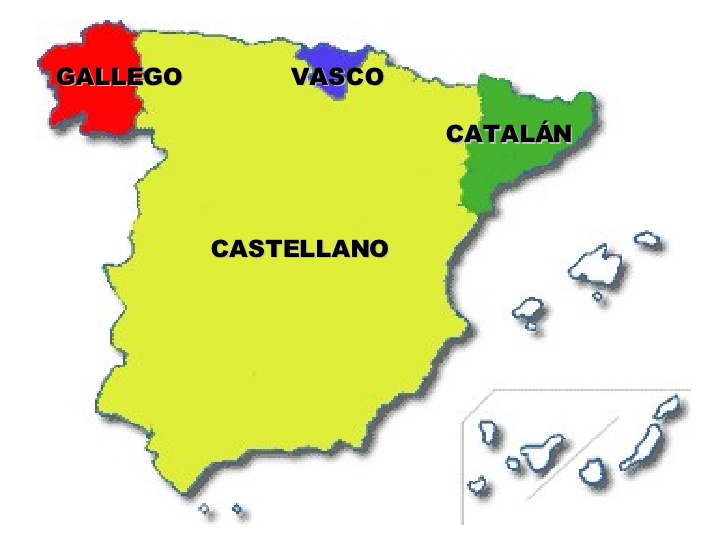
In Spain, as you probably already know, other languages are spoken in addition to Spanish. Spanish is the official language throughout the country, but in some regions, it coexists with other official languages: Galician, Basque, Catalan and Valencian. These are the co-official languages in Galicia, the Basque Country and Navarre, Catalonia and the Balearic Islands, and Valencia.
Catalan: The first known text written in Catalan dates from the 12th century. It is the translation of a small piece of code of Visigothic laws: Liber Iudiciorum. In the thirteenth century, Ramon Llull was the first great universal literary talent to use Catalan in his prose. After centuries of linguistic repression, a time of recovery began in the 19th century (Renaixença). In 1907 the Institut d'Estudis Catalans (Institute of Catalan Studies) was created, and in 1913 established the Normes ortogràfiques (Orthographic rules), in 1917 the Diccionari Ortogràfic (Orthographic Dictionary) and in 1918, the Grammar.
Basque (Euskera): The co-official language in the Basque Country and in the Community of Navarre since 1979. Since then rules have been developed – Euskera Batua, which groups the six dialects of Basque, was agreed upon - and various institutions for the recovery of the competitiveness and use of the language have been created. It is one of the oldest languages in Europe. Its origins are unknown, although some linguists have tied it to the Caucasian languages. The first text in Basque was Linguae Vasconum Primitiae by Bernard Dechepare (1545). Later, in 1571, Joanes Leizarraga translated the New Testament into Basque (Testamente Berria).
Galician: Since 1978 it has been the co-official language of Galicia together with Castilian. Although it thrived in the 18th century with the Cantigas de Santa María by Alfonso X the Wise, it was not until the 19th century when the literary Rexurdimento (Resurgence) and the singular linguistic movements brought Gallego back into world culture. In 1905, the Real Academia Gallega was constituted; this represented the institutionalisation of the process for linguistic recovery.
Valencian: Its literary splendour took place in the 15th century and part of the 17th century. In the late 19th century, the movement known as “Renaixença” recovered the use of this language in literature. In 1932, the orthographic norms were signed; these were followed by Valencian authors for the following 40 years. In 1998, the Cortes Valencianas (Valencian Parliament) approved the creation of the Academia Valenciana de la Lengua.